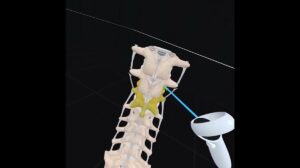NEW YORK (Reuters Health) – In a pilot study of acute ischemic stroke patients, intravenous tenecteplase administered using advanced imaging guidance in an extended window of 3 to 6 hours after stroke onset yielded greater reperfusion and recanalization rates compared with treatment with alteplase within the standard 3-hour time frame.
The results indicate that tenecteplase, a modified tissue plasminogen activator with a longer half-life and higher fibrin specificity than alteplase, “may have significant biologic efficacy in acute ischemic stroke,” Dr. Mark W. Parsons and colleagues from University of Newcastle, Australia report in the March 10 issue of Neurology.
Their prospective, nonrandomized study involved 15 patients with acute ischemic stroke treated with tenecteplase (0.1 mg/kg IV) given 3 to 6 hours after stroke onset. “Eligibility criteria for tenecteplase treatment included a perfusion lesion at least 20% greater than the infarct core, with an associated vessel occlusion,” based on CT or MRI perfusion imaging, the team explains.
A control group consisted of 35 similar patients contemporaneously treated with sub-3-hour alteplase (0.9 mg/kg), following standard selection criteria.
According to the investigators, the tenecteplase group had significantly greater reperfusion (mean 74%) than the alteplase group (44%), and major vessel recanalization (10 of 15 tenecteplase-treated patients versus 7 of 29 alteplase-treated patients; p = 0.01).
“This enhanced reperfusion also did not seem to come at the cost of increased intracranial hemorrhage, with no incidences of parenchymal hematoma in the 15 tenecteplase patients compared with 4 in the alteplase group,” the investigators note.
In addition, more tenecteplase-treated patients (10/15 vs 7/35 alteplase; p = 0.001) had major neurologic improvement at 24 hours, as evidenced by a reduction of 8 points or more on the NIH Stroke Scale.
“The greater reperfusion seen in the tenecteplase group clearly was also biologically significant because it translated into greater early clinical improvement, despite later time to treatment,” Dr. Parsons and colleagues point out.
“These results lend support for randomized trials comparing tenecteplase with alteplase, preferably incorporating penumbral/angiographic imaging selection,” they conclude.
Reference:
Neurology 2009;72:915-921.
Sponsored by The Doctor’s Channel




